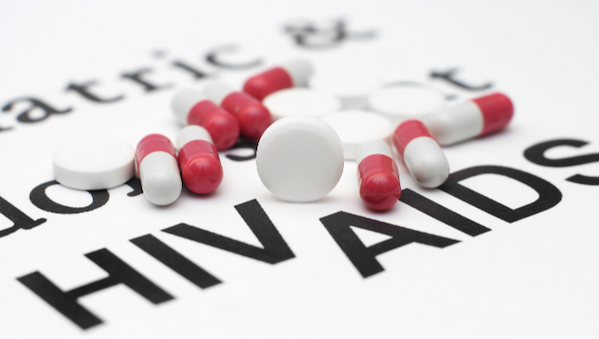ViiV Healthcare Reveals Positive Results from Phase I Trial for a Potential Longer-Acting HIV Treatment
March 8, 2024
Source: drugdu
 488
488
Don Tracy, Associate Editor
Novel formulation of cabotegravir (CAB-ULA) allows for dosing intervals of at least four months. Image Credit: Adobe Stock Images/alexskopjeViiV Healthcare has announced promising results from a Phase I study on a new formulation of cabotegravir (Apretude), known as cabotegravir ultra long-acting (CAB-ULA) for HIV pre-exposure prophylaxis (PrEP). Findings suggested that CAB-ULA is well-tolerated and has a pharmacokinetic profile supportive of extended dosing intervals. According to a company press release, the formulation allows dosing intervals of four months, resulting in a reduction of clinical visits for HIV patients.1
Image Credit: Adobe Stock Images/alexskopjeViiV Healthcare has announced promising results from a Phase I study on a new formulation of cabotegravir (Apretude), known as cabotegravir ultra long-acting (CAB-ULA) for HIV pre-exposure prophylaxis (PrEP). Findings suggested that CAB-ULA is well-tolerated and has a pharmacokinetic profile supportive of extended dosing intervals. According to a company press release, the formulation allows dosing intervals of four months, resulting in a reduction of clinical visits for HIV patients.1
“The HIV community has told us of their desire for longer-acting medicines that can help alleviate the burden of daily treatment,” said Kimberly Smith, MD, MPH, head of research and development, ViiV Healthcare, in the press release. “ViiV Healthcare is a pioneer and leader in the development of long-acting HIV medicine, having already brought innovations through injectable therapies to the HIV community. This new formulation of cabotegravir (CAB-ULA) with a higher concentration and at least double the half-life puts us on the path toward delivering dosing at every four months for HIV treatment and PrEP.”
Cabotegravir was initially approved by the FDA in December 2021 as a long-acting injectable PrEP. It was only the third medication to be granted FDA approval for PrEP, following emtricitabine/tenofovir disoproxil fumarate (Truvada) and emtricitabine/tenofovir alafenamide (Descovy), which is only indicated for men and transgender women.
In the recent Phase I trial comparing the safety and pharmacokinetics of CAB-ULA versus an existing 200 mg/mL cabotegravir formulation (CAB200), results found that the former’s maximum plasma concentration was lower, demonstrating slower absorption, but with a much longer half-life. As a result, researchers said that there is potential for a similar exposure with a 1600 mg/3mL dose of CAB-ULA administered every four months compared to the current 600 mg/3mL dose of CAB200 administered every two months.1
“These findings suggest CAB-ULA has a PK profile with the potential for a dosing interval of at least four months, which is longer than any currently approved HIV prevention option,” said Kelong Han, PhD, primary study investigator, GSK, in the press release. “We look forward to the further clinical development of this promising medicine. As we look to the future, further advancements in longer acting medicines have the potential to revolutionize how HIV is treated and prevented.”
Last July, cabotegravir earned a positive Committee for Medicinal Products for Human Use (CHMP) review through the EMA, recommending a marketing authorization for long-acting injectable and tablets for HIV prevention. Additionally, it was recommended in combination with safe sex practices to reduce the risk of contracting HIV.2
“The expansion of prevention options is critical if we are to end the HIV epidemic. Long-acting options have the potential to play an important role in reducing challenges such as inconsistent adherence to taking daily pills, and stigma associated with oral PrEP use that can be faced by people who could benefit from PrEP,” said Smith, according to another release. “At ViiV Healthcare we are at the forefront of cutting-edge science, developing innovative solutions to address the biggest unmet needs in HIV prevention. With the CHMP positive opinion, we are hopeful that people in Europe will soon be able to benefit from greater choice.”
Read more on
- Phase III Clinical Trial of Recombinant Staphylococcus Aureus Vaccine Progressing Normality January 21, 2026
- Its drug marketing application for injectable iza-bren has been accepted January 21, 2026
- Kain Technology withdrew a drug registration application, resulting in a profit reduction of 111 million yuan in 2025 January 21, 2026
- Received Notice of Approval for Drug Clinical Trial January 21, 2026
- Breaking news! AstraZeneca to be delisted from Nasdaq. January 21, 2026
your submission has already been received.
OK
Subscribe
Please enter a valid Email address!
Submit
The most relevant industry news & insight will be sent to you every two weeks.



